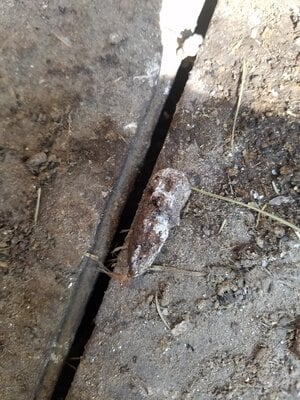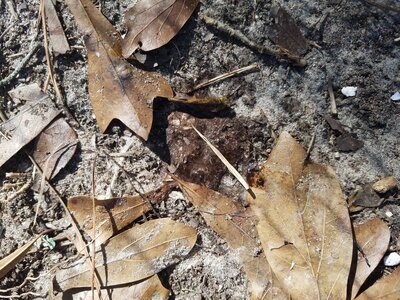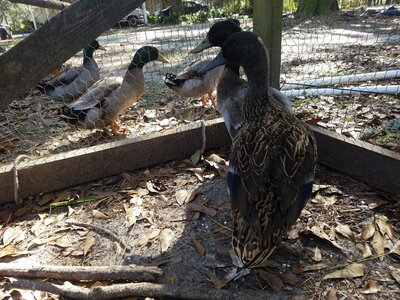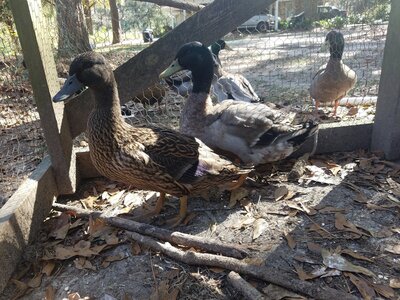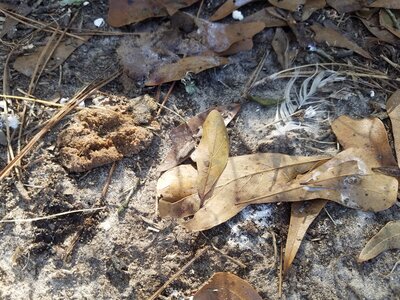My mother has a flock of barnyard ducks that live off foraging. Four ducks from this year's clutch have become ill within the last few weeks with two of the four dying. During my visit, we noticed two more (the third and fourth) stumbling during their morning whole corn treat. They've been separated for observation and, hopeful, recovery. My first thoughts are they are eating something in their daily forage or poor genetics as they are all from the same clutch.
Q&A:
1) What type of bird , age and weight (does the chicken seem or feel lighter or thinner than the others.)
- Campbell/Harlequin mix ducks, approx 7 months old. Both drake and hen feel underweight.
2) What is the behavior, exactly.
- Both are lethargic. Drake tripping and stumbling, often wings drooping. Crops were empty from night penning, but both have a good appetite. Drake has lost his voice, just as prior two now deceased drakes did.
3) How long has the bird been exhibiting symptoms?
- This morning was when we noticed. Two other drakes from the same clutch died within 2 days of presenting symptoms about a week ago according to my mother.
4) Are other birds exhibiting the same symptoms?
- One drake and one hen. 2 drakes with the same symptoms from the same clutch died a week or so ago.
5) Is there any bleeding, injury, broken bones or other sign of trauma.
- No signs of trauma
6) What happened, if anything that you know of, that may have caused the situation.
- The ducks free range all day so encounters and diet are fairly unknown.
7) What has the bird been eating and drinking, if at all.
- Drinking pond water, open water sources. Diet is free range with whole corn treats for morning release and evening return to pen. Gleaning what spillage from goat chow.
Since separation, we've offered diluted pedialyte (what was on hand) and mediated goat chow for something more substantial, only about a cup. They did not eat enough to fill crops. (There is also scratch and layena available for feeding)
8) How does the poop look? Normal? Bloody? Runny? etc.
- runny, white from what I can currently find since separating
9) What has been the treatment you have administered so far?
- diluted pedialyte and medicated goat feed (on hand)
10 ) What is your intent as far as treatment? For example, do you want to treat completely yourself, or do you need help in stabilizing the bird til you can get to a vet?
- self treatment
11) If you have a picture of the wound or condition, please post it. It may help.
- n/a
12) Describe the housing/bedding in use
- dirt pen and daily access to grass, woodland, pond
Q&A:
1) What type of bird , age and weight (does the chicken seem or feel lighter or thinner than the others.)
- Campbell/Harlequin mix ducks, approx 7 months old. Both drake and hen feel underweight.
2) What is the behavior, exactly.
- Both are lethargic. Drake tripping and stumbling, often wings drooping. Crops were empty from night penning, but both have a good appetite. Drake has lost his voice, just as prior two now deceased drakes did.
3) How long has the bird been exhibiting symptoms?
- This morning was when we noticed. Two other drakes from the same clutch died within 2 days of presenting symptoms about a week ago according to my mother.
4) Are other birds exhibiting the same symptoms?
- One drake and one hen. 2 drakes with the same symptoms from the same clutch died a week or so ago.
5) Is there any bleeding, injury, broken bones or other sign of trauma.
- No signs of trauma
6) What happened, if anything that you know of, that may have caused the situation.
- The ducks free range all day so encounters and diet are fairly unknown.
7) What has the bird been eating and drinking, if at all.
- Drinking pond water, open water sources. Diet is free range with whole corn treats for morning release and evening return to pen. Gleaning what spillage from goat chow.
Since separation, we've offered diluted pedialyte (what was on hand) and mediated goat chow for something more substantial, only about a cup. They did not eat enough to fill crops. (There is also scratch and layena available for feeding)
8) How does the poop look? Normal? Bloody? Runny? etc.
- runny, white from what I can currently find since separating
9) What has been the treatment you have administered so far?
- diluted pedialyte and medicated goat feed (on hand)
10 ) What is your intent as far as treatment? For example, do you want to treat completely yourself, or do you need help in stabilizing the bird til you can get to a vet?
- self treatment
11) If you have a picture of the wound or condition, please post it. It may help.
- n/a
12) Describe the housing/bedding in use
- dirt pen and daily access to grass, woodland, pond





